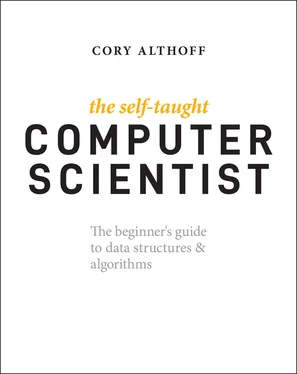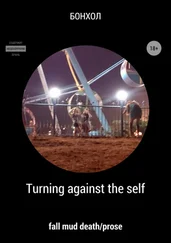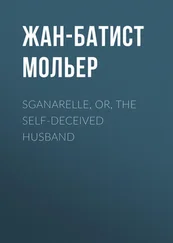When I lost my job, I was enrolled in school. After I lost my house, I kept doing schoolwork out of my car and tent for a couple of months. My family wasn't able to help me. They didn't understand minimum wage jobs don't pay anywhere near enough to feed one person and keep gas in the tank while keeping a roof over your head. Nonetheless, I was still unwilling to reach out to my friends for help. In September, I sold my truck, cashed what I had left in a 401(k), and drove the 1,800 or so miles from my hometown in Helena, Montana, to take my chances in Austin, Texas.
Within a week, I had two or three interviews, but no companies wanted to take a chance on a homeless guy, skilled or not. After a few months of this, I had friends and strangers donating to my GoFundMe to try to help me get back on my feet. At this point, I was eating about once a day, seldom anything good, in any sense of the word. My only shot at getting out of this situation was becoming a programmer.
Finally, I decided to do one last push. I sent out my résumé en masse to any job I remotely had a chance of being qualified for. The next day, a small startup called me for an interview. I did my best to look decent. I shaved, put on clean clothes, tied my hair back, showered (a hell of a task for the homeless), and showed up. I came clean, explained my situation, explained why I took my chances here in Austin, did my best during the interview to show I may not be the best as I stood there at that moment, but given an opportunity, I would work my ass off to show that one day I could be the best.
I left feeling like I bombed the interview. I thought maybe my honesty had sunk my chances, but a week and a half later, after feeling like giving up entirely, the startup called me back in for a second interview.
When I showed up, it was only the big dog. The boss said he was impressed by my honesty, and he wanted to give me a chance. He told me I had a decent foundation, and I was like a box: a sturdy but relatively empty box. He thought I was sturdy enough to handle anything they threw at me, and I would learn on the job. Finally, he told me I would start on December 6.
One year later, I live in a much nicer apartment than before becoming a programmer. I am respected among my co-workers, and they even ask my opinion on significant company matters. You can do or be anything. Never be afraid to try, even if it means taking a real chance at everything falling apart.
Next up is Tianni Myers, who read The Self-Taught Programmer and emailed me the following story about his journey learning to code outside of school:
My self-taught journey started in a web design class I took in college while working toward a bachelor's degree in media communications. At the time, I was interested in writing and had dreams of working in marketing. My goals shifted after deciding to learn to program. I'm writing to share my self-taught story about how I went from retail cashier to a junior web developer in 12 months.
I started out learning the basics of HTML and CSS on Code Academy. I wrote my first Python program, a numbers game; the computer picked a random number, and the user had three tries to guess the correct one. That project and Python got me excited about computers.
My mornings started at 4 a.m., making a cup of coffee. I spent 6 to 10 hours a day reading programming books and writing code. At the time, I was 21, and I worked part-time at Goodwill to make ends meet. I had never been happier because I spent most of my day doing what I loved, which was building and creating various programming languages as my tools.
I was on Indeed one day casually applying for jobs. I wasn't expecting to get a response, but I did a few days later from a marketing agency. I did a SQL assessment on Indeed followed by a phone interview, then a code assessment, and soon after an in-person interview. During my interview, the web development director and two senior developers sat down and reviewed my answers for the code assessment. I felt good because they were blown away by some of my answers and pleasantly surprised when I told them I was self-taught. They told me some of my answers were better than ones given by senior developers that they had previously given the same code assessment. Two weeks later, they hired me.
If you can put in the work and get through the pain, then you can make your dreams come true as I did.
The code examples in this book are in Python. I chose Python because it is one of the easiest programming languages to read. Throughout the book, I formatted the code examples like this:
for i in range(100): print("Hello, World!") >> Hello, World! >> Hello, World! >> Hello, World!
The text # http://tinyurl.com/h4qntgkcontains a URL that takes you to a web page that contains the code from it, so you can easily copy and paste it into Python's IDLE text editor if you are having problems getting the code to run. The text that comes after >>is the output of Python's interactive shell. Ellipses after an output ( …) mean “and so on.” If there is no >>after an example, it means either the program doesn't produce any output or I am explaining a concept, and the output is not important. Anything in a paragraph in monospaced fontis some form of code or code output or programming jargon.
To follow the examples in this book, you need to have Python version 3 installed. You can download Python for Windows and Unix at http://python.org/downloads. If you are on Ubuntu, Python 3 comes installed by default. Make sure you download Python 3, not Python 2. Some of the examples in this book will not work if you are using Python 2.
Python is available for 32-bit and 64-bit computers. If you purchased your computer after 2007, it is most likely a 64-bit computer. If you aren't sure, an Internet search should help you figure it out.
If you are on Windows or a Mac, download the 32- or 64-bit version of Python, open the file, and follow the instructions. You can also visit http://theselftaughtprogrammer.io/installpythonfor videos explaining how to install Python on each operating system.
If you are having difficulties installing Python, please post a message in the Self-Taught Programmers Facebook group. You can find it at https://facebook.com/groups/selftaughtprogrammers. When you post code in the Self-Taught Programmer Facebook group (or anywhere else online asking for help), make sure to put your code in a GitHub Gist. Never send a screenshot of your code. When people help you, they often need to run your program themselves. When you send a screenshot, they have to type all of your code by hand, whereas if you send your code in a GitHub Gist, they can quickly copy and paste it into their IDE.
Many of the chapters in this book end with a coding challenge for you to solve. These challenges are meant to test your understanding of the material, make you a better programmer, and help prepare you for a technical interview. You can find the solutions to all of the challenges in this book on GitHub at https://github.com/calthoff/tstcs_challenge_solutions.
As you are reading this book and solving the challenges, I encourage you to share your wins with the self-taught community by using #selftaughtcoderon Twitter. Whenever you feel like you are making exciting progress on your journey learning to code, send a motivational tweet using #selftaughtcoderso other people in the community can get motivated by your progress. Feel free to also tag me: @coryalthoff.
Читать дальше












